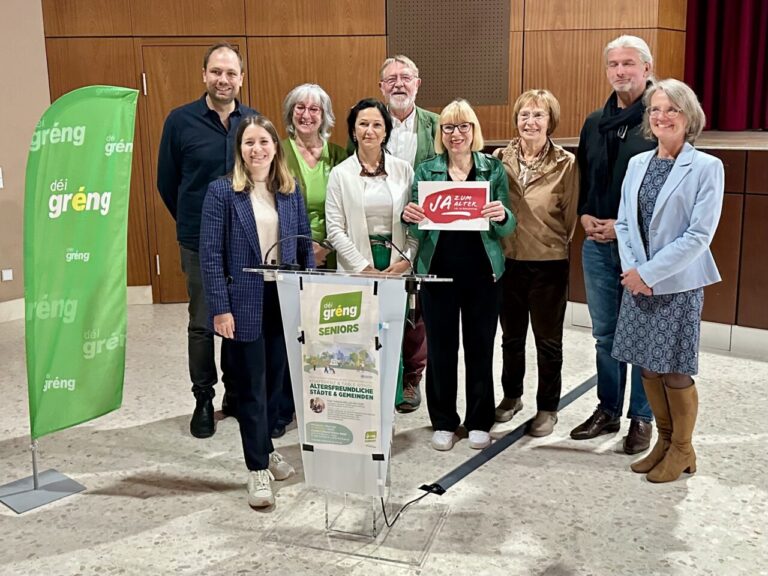
Dear Friends,
May we invite you to our webinar on the theme of mobility for older persons?
Older people have the right to participate in normal life, and we need to create the framework conditions for this. One of the key-transitions is that we need to move away from car-centred transport and instead focus on pedestrians, cyclists, wheelchairs and public transportation in the future as a part of a green and decarbonization transition.
Many older people would be happy to leave their cars behind if there were suitable alternatives. In consequence, all cities need urgently to develop a walking policy.
And it is clear: The mobility transition cannot be achieved without older people.

Mobility is a prerequisite for participation

That is why the impact and reorganisation of public services, care, accessibility and mobility, loneliness and liveable pensions for all are urgently needed.
Older people have the right to participate in normal life, and we need to create the framework conditions for this.
We have already drawn up a catalogue of demands based on participation events and internal discussions within the Executive Board. We would like to discuss, supplement and finalise this with you. We need a position paper to disseminate our demands and convince meps, green parties, members of green governments and public opinion.
Our proposals up to now:
-Barrier-free public transport, barrier-free stops and transfer points, barrier-free access to stations.
-On-demand shuttles for the last mile, for example bus, shared taxi, self-driving shuttles. People with limited mobility cannot walk the last or first kilometre to the stop. It is important that the shuttles take people directly to their destination and do not drop them off at special stops. This is particularly important for people with visual impairments.
-Adapted and accessible public transport in our villages and cities. Many older persons are lonely through no fault of their own but because of serious limitations to their mobility due to the design of walkways and public transport.
-Barrierfree sidewalks of sufficient width without protruding stones or gully cover or other tripping hazards, including regular clearing of snow-covered paths in winter.

-More age-friendly benches with armrests and backrests that are not too high and not too low to allow people to take a breather. Very good are so called Friendship Bench, which originally came from Zimbabwe, where the bench was developed to help people in need of therapy. In Europe, specially labelled benches are intended to help people to talk to each other and prevent loneliness.
-Dedicated parking spaces for e-scooters, so that they are not lying around on the pavements.
-Ecological lighting of sidewalks, for example with motion detectors, because for many older persons it is harder to see in the dark and easier to fall. A fall might have different consequences for older people than for younger people, sometimes they can’t get back on their feet at all.
-Separation of pedestrian paths and bicycle lanes , for example with protected bikelanes. E-bikes or e-scooters that pass by quickly without being heard are a big problem for people who are hearing impaired. In addition, the sense of balance often deteriorates in old age, meaning that people lose their balance.
-Sufficient public barrierfree toilets or other systems for public use (for example the friendly toilet in in the catering trade). Some people are afraid to leave their homes because they can’t find a toilet at time when they’re out and about. This is especially important for old persons, who don’t have the money to simply go to a café.
-Reduced fee or free senior ticket for public transport, because poverty in old age is a growing problem.
-Longer green phases when crossing wide roads (see introduction, more focus on pedestrians than on cars).
-Since public transportation and infrastructure is divided among all levels of government (local, regional, provincial and national) the European Union must provide a practical framework in its legislation to bridge all these political entities.
-It is necessary to develop sensibilization campaigns all over Europe, above all in public transports, for pedestrians, bicycles users and car drivers in order to respect one another and to be aware of the situation of older persons and their needs.
We are looking forward to discuss these demands with you!
European Green Seniors





comment article